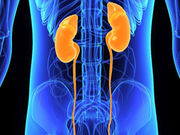Living kidney donor costs up with higher degree of allosensitization; also linked to obesity
THURSDAY, Sept. 1, 2016 (HealthDay News) — Kidney donor and recipient characteristics impact transplant costs, according to a study published online Aug. 27 in the American Journal of Transplantation.
David Axelrod, M.D., M.B.A., from the Brody School of Medicine in Greenville, N.C., and colleagues performed a national retrospective cohort study to examine the impact of kidney donor and recipient characteristics on transplant center cost and Medicare reimbursement. Data were analyzed for 53,862 deceased donor and 36,715 living donor transplants from 2002 to 2013.
The researchers observed correlations for deceased donor kidney transplant costs with recipient characteristics (Expected Post Transplant Survival Score, allosensitization, obesity, and cause of renal failure), donor characteristics (age, cause of death, donation after cardiac death, and terminal creatinine), and transplant characteristics (histocompatibility matching). There was a sharp increase in living donor costs for higher degrees of allosensitization; correlations were also seen for obesity, causes of renal failure, recipient work ability, and 0-ABDR mismatching. In a subsample of 24,809 transplants, Medicare payment showed a minimal correlation with patient and donor characteristics.
“The complexity in the landscape of kidney transplantation increases center costs, posing financial disincentives that may reduce organ utilization and limit access for higher-risk populations,” the authors write.
Copyright © 2016 HealthDay. All rights reserved.








